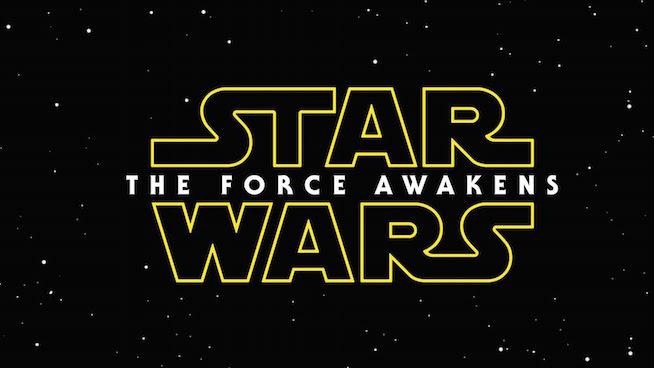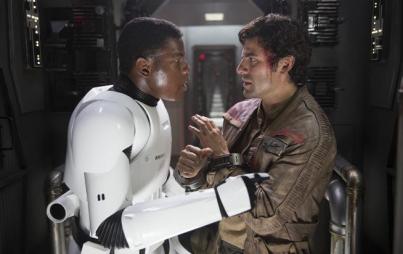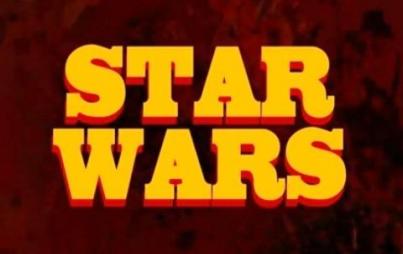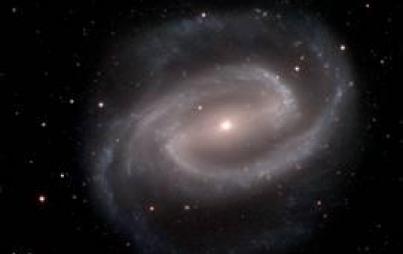
Image: Wikimedia
And down here on earth, race still very much matters, even when people say it doesn't.
Last year there was much excitement at the announcement Lupita Nyong'o was going to play a major role in Star Wars: The Force Awakens — the first Black woman to star in the franchise.
There was less excitement at the announcement that Nyong'o's character, Maz Kanata, is entirely computer-generated — her face won't actually appear on the screen. The film will use motion capture of her acting, and of course her voice, but what you see on screen with be a non-human alien, not Nyong'o. As Jamie Broadnax wrote at Black Girl Nerds, "Many fans believed that this was just another way that Hollywood is once again marginalizing Black women in science fiction."
The treatment of Nyong'o is certainly in line with how the Star Wars series has treated Black people in the past. The Black actor with the largest role in the first three films, like Nyong'o, never got his face on screen. James Earl Jones as the voice of Darth Vader was both iconic and absent. When Vader's face is finally revealed in Star Wars: Return of the Jedi, he is, of course, played by a white actor.
Even the visible Black actors in Star Wars are invisible, in the sense that Blackness in the films is never commented upon or consequential.
Characters like Lando Calrissian (Billy Dee Williams), Mace Windu (Samuel L. Jackson), or the royal guard with a minor speaking part in Star Wars: The Phantom Menace all have dark skin. But that dark skin is unmarked and unremarked.
In the world of Star Wars, a long time ago and far, far away, Black people are neither discriminated against nor perceived as a distinct group. As far as the Star Wars universe is concerned, Mace Windu could be White and Han Solo could be Black. The characters in this universe do not see color.
On the one hand, this makes sense. The Star Wars universe is one in which scads of aliens and droids regularly rub shoulders (and tentacles) with humans. It's natural that, in that setting, skin color would fade into insignificance. When you're chatting with Wookiees and Hutts, who cares if the guy behind the Vader mask is White, Black, or purple?
This is an attractive vision in some ways. A post-racial world, in which color is unimportant and integration is perfect and unremarked — that's something people of every race, from Martin Luther King Jr. on down, have dreamed about and hoped for. Star Wars provides a fantasy world in which race, as stigma and burden, disappears.
The problem is that we're still down here on earth, not off in space somewhere. And down here on earth, race still very much matters, even when people say it doesn't. Star Wars' determination not to see race has in practice meant that race sneaks in by the back door via recycled pulp tropes, with bizarre and painful results.
The "slave Leia" sequence in Star Wars: Return of the Jedi, for example, is a not-very-subtle harem riff, with Jabba the Hutt as a bloated, loathsome caricature of a wealthy Arab, and Leia as the kidnapped slave girl. In the same film, the Ewoks are slotted into the role of noble savages, worshipping the golden, British-accented conqueror C-3PO. There's a similar dynamic in Star Wars: The Phantom Menace, where Jar Jar Binks acts as the humorous native minstrel companion — a trope going back at least to Winsor McCay's famous comic strip Little Nemo in Slumberland.
Race also matters in terms of whose face gets screen time. Star Wars pretends to be a world in which Lando could be white and Han could be Black, but the fact is, Harrison Ford got the bigger and more iconic role, and that wasn't an accident. People in the Star Wars universe may not see color. But folks out here watching would very much notice if Anakin Skywalker was Black, because he's supposed to be Luke's dad, and Hollywood thinks Black people don't have White kids — on this world or any other.
The decision to keep Lupita Nyong'o's face off-screen feels not only consistent but unfortunately familiar. Given the Ewoks and Jar Jar Binks, you almost have to be a little nervous that the cartoon character representing a Black woman will end up as a borderline racist caricature. And even if the film avoids that worst case, the chance for Black girls and women to watch one of their own on screen in a hugely popular franchise has been gratuitously squandered. It's promising that John Boyega is going to have a major role in The Force Awakens. But the fact that we won't see Nyong'o at all suggests that Star Wars' inability to see race continues to limit the series' vision.




